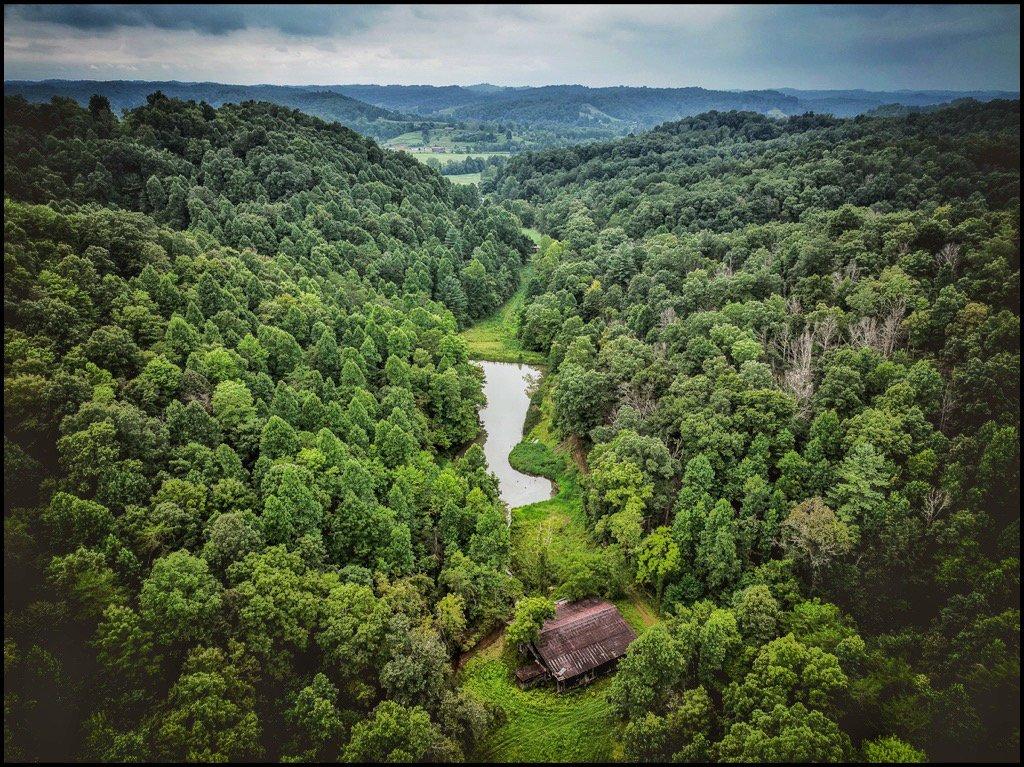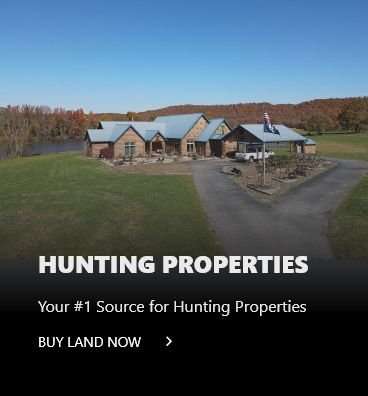What if you’re looking for 50 acres on which to plant a food plot, build a cabin, and call your own? In some ways, the land market has been just as crazy as the housing market.
If you’ve sold or shopped for a home in the past two years, then you know the housing market has been crazy, with existing home prices still sitting at near record highs even as interest rates have doubled.
But what if you’re looking for 50 acres on which to plant a food plot, build a cabin, and call your own? In some ways, the land market has been just as crazy as the housing market. I’ve watched land listings in my area double in price per acre over the past year—but not all of them are selling.
My buddy Reese Johnson is a real estate agent and hardcore hunter (he sent us this trail camera reel of a hen turkey hatching a nest last spring) who’s as comfortable walking a farm for sale as he is showing a home in town. “We’re kind of at a stalemate, where many sellers still want 2021 prices, but buyers are more hesitant because of those prices,” he said. “But I’m still busy, and things are still selling.”
LAND SALES VS. HOME SALES

Land transactions are often slower than home transactions, for a few reasons. For one, land loans are more difficult to get. There are fewer lenders, and the loans frequently require larger down payments, shorter terms, and higher, adjustable interest rates. That discounts many buyers.
There’s often urgency to a home sale, too, because a seller’s ability to move to a new home is often contingent on the sale of the first home. That’s a bargaining chip. But the farmer who lives on his 400 acres free and clear and decides to sell a 50-acre corner of it isn’t under that pressure. As the old saying goes, “It ain’t eating nothing.”
So before answering the broad question of, “Is it a good time to buy land?”, you need to answer these three questions first.
CAN YOU GET FINANCING?
Most of us will need to borrow money to buy land, and the biggest hurdle to get approved for that loan is having the dry powder on hand for a down payment. While some home loans might require as little as 5% down, you’ll almost always need 20%+ for a land loan. So if you’re looking to buy 50 acres for $150,000, you’ll need $30,000 of that up front.
Monthly payments can be higher, too. Home loans are usually 30-year notes, but Johnson says land loans are typically 20 years, and with higher interest rates to boot. “You might find better terms by shopping around between lenders,” Johnson says. “Check with lenders that work with farm credit, or smaller, local banks. A lot of the big mortgage companies want 30% down on anything that’s not a house, because that’s not where they want to do business. But getting pre-approved for the loan is the No. 1 rule of shopping for land. When the right place comes up, you have to be able to jump on it.”
*(**Don’t Miss: *3-Year-Old Finds Monster Dead Buck in Ohio)
IS THE NEIGHBORHOOD PRICE RIGHT?
Just as homes are often priced by the square footage, land is often priced per acre. But there’s usually a big picture to consider before flatly deciding that a property is overpriced—or a deal too good to be true. In general, smaller properties sell faster because the final price tag is more affordable, but the cost per acre tends to be higher. “Most working-class deer hunters who call me looking have a budget of $150,000,” Johnson says. “Price per acre is relative on those small properties. Once you’re under 30 acres, you’re competing with home buyers (and things generally get more expensive). I don’t emphasize price per acre at all on small properties like that.”
On larger properties, 50 acres or bigger, price per acre is a better yardstick. The land you’re scoping out should more or less match the going rate for the neighborhood. Whether something is worth more can be subjective. Sellers can list their land for whatever they want. As a hunter, it’s good to remember that 40 acres of prime creek bottoms is better than 100 acres of parking lot. “Generally, people looking above 50 acres can be a little pickier,” Johnson says. “I’ve got buyers that I’ve shopped for two or three years, waiting for just the right place.”
WILL THE MARKET GET BETTER?
If you’re waiting for interest rates and land prices to fall, you could be waiting a while. “The unfortunate reality is that it’s just getting harder for working class people to afford land,” Johnson says. “The demand for it isn’t going down. Not long ago there was a group of professional athletes who went in together and bought farmland in Iowa for like $15,000 an acre. They needed a place to put their money, and in the history of the country, land prices have never gone down. When you have groups of extremely wealthy people like that pooling money to buy ground, nobody can compete with it. I’ve sold to people from 20 different states this year. They’re bringing cash, and driving the prices up. I think more of that is coming. At the same time, the old mindset of being able to buy tillable land and then depending on the farming income to pay the note is gone. It’s hard to make money off land anymore unless you sell it.”
Even as a real estate agent himself, Johnson says the best land deals right now happen offline, in For Sale By Owner type transactions. But you have to be ready when you find them with the groundwork listed above. “If the numbers make sense and you want to buy land, you have to buy when the opportunity is there,” Johnson says.
As the old saying goes, they aren’t making more of it.
(Don’t Miss: The Ultimate Deer Hunting Property)










